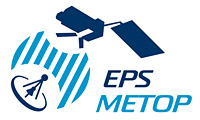Dataset Collection
Data from the Global Ozone Monitoring Experiment-2 (GOME-2) on-board the Eumetsat Polar System (EPS) MetOp-B Satellite
Abstract
Data from the GOME-2 instrument on-board the Eumetsat Polar System (EPS) Metop-B satellite. GOME-2 is a spectrometer that measures both the radiance component of the light reflected by the Sun-illuminated Earth's atmosphere and the direct sunlight. The measurements are used to obtain detailed information on global trace gas distributions of ozone, nitrogen dioxide, water vapor, bromine oxide and other trace gases as well as aerosol properties. The NERC Earth Observation Data Centre (NEODC) currently holds Level 1B data, and obtained the data directly from Eumetsat.
Details
| Previous Info: | No news update for this record |
|---|---|
| Previously used record identifiers: |
http://badc.nerc.ac.uk/view/neodc.nerc.ac.uk__ATOM__DE_8ef1e2ce-2487-11e4-828b-00163e251233
|
More Information (under review)
The Global Ozone Monitoring Experiment–2 (GOME–2), is an optical spectrometer, fed by a scan mirror which enables across–track scanning in nadir, as well as sideways viewing for polar coverage and instrument characterisation measurements using the moon. The scan mirror directs light into a telescope, designed to match the field of view of the instrument to the dimensions of the entrance slit. This scan mirror can also be directed towards internal calibration sources or towards a diffuser plate for calibration measurements using the sun.
GOME–2 comprises four main optical channels which focus the spectrum onto linear silicon photodiode detector arrays of 1024 pixels each, and two Polarisation Measurement Devices (PMDs) containing the same type of arrays for measurement of linearly polarised intensity in two perpendicular directions. GOME–2 senses the Earth’s Backscattered Radiance and Extraterrestrial Solar Irradiance in the ultraviolet and visible part of the spectrum (240 – 790 nm). The detected signals are preprocessed on board and then transmitted to ground for full data processing and generation of maps. The recorded spectra are used to derive a detailed picture of the total atmospheric content of ozone and the vertical ozone profile in the atmosphere, vertical profiles of ozone, nitrogen dioxide, water vapour, oxygen / oxygen dimmer, bromine oxide and other trace gases, as well as aerosols. [ref: www.eumetsat.int]
This catalogue page refers to data flown on the Metop-B satellite. Data from the GOME-2 instrument on Metop-A is also available from the NEODC
If you would like to access the GOME–2 data held at NEODC, please
- Register as a NEODC user. If you already are a NEODC registered user, skip this step. If you have forgotten your NEODC user ID and/or password, please contact the NEODC helpdesk at neodc@rl.ac.uk.
- Apply for access to the GOME–2 data. Application involves the agreement with the GOME–2 Conditions of Use
Data can be viewed and downloaded from the GOME–2 archive. The Eumetsat website provides tools and documentation to help you use and understand the data (please see Links below).
Software is available, free of charge, which may assist you in viewing data from the GOME–2 instrument:
- BEAT: The Basic Envisat Atmospheric Toolbox (BEAT) provides a set of tools for ingesting, processing and analysing atmospheric remote sensing data. The primary instruments supported by BEAT are GOMOS, MIPAS and SCIAMACHY (flown on the Envisat satellite). However, BEAT also supports access to data from a wide range of other atmospheric instruments like GOME–2.
The data archived at the NEODC is received from Eumetsat and currently includes
- GOME–2 Level 1B data in EPS native format
The data are freely available to registered users, who are obliged to respect EUMETSAT's copyright into the archived data and products. For further information visit the EUMETSAT website.
- NEODC Conditions of Use of GOME–2 data.
- Eumetsat archive data policy
- GOME–2 Products Guide
- The EUMETSAT website.
- The GOME–2 page at ESA.
- The BEAT software information and download.
If you have any difficulties with accessing these data please contact the NEODC helpdesk.
Related Documents
Temporal Range
-
-
Geographic Extent
90.0000° |
||
-180.0000° |
180.0000° |
|
-90.0000° |

